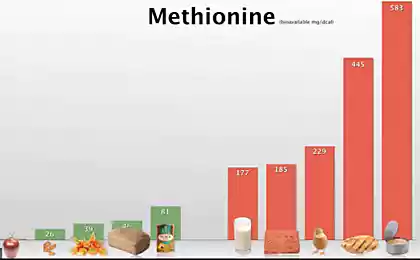257
How much protein do you need per day?

Proteins are the “building material” of our body. They are essential for normal growth, tissue repair, maintaining the immune system, and many other vital functions. Without enough protein in the body, it is impossible to maintain optimal levels of health and energy. However, as with any nutrients, it is important to maintain a balance. Too much protein can also harm your health.
Health ecology: the role of protein in the body
Proteins play a key role in the body, being the main components of cells, tissues, muscles and organs. They are involved in the formation of enzymes, hormones, antibodies and transport molecules. Protein is one of the most important elements of the diet, especially for people leading an active lifestyle, playing sports or recovering from illness. However, it is important to know how much protein your body needs to maintain its normal function.
Why know how much protein you need?
Incorrect intake of protein can lead to both deficiency and excess. A lack of protein can weaken the immune system, lead to loss of muscle mass and slow cell repair. While excess protein can strain the kidneys and liver, and also lead to obesity due to excess calories. Knowing your protein intake rate helps avoid these problems.
How to calculate the need for protein?
There are several methods to determine daily protein requirements based on body weight, activity level, and goals. For example, to maintain normal health, it is enough for an adult to consume 0.8 grams of protein per kilogram of body weight. For people who exercise or seek to gain muscle mass, the need for protein can increase to 1.2-2.0 grams per kilogram.
How much protein do you need per day?
Answer the following questions to find out how much protein your body needs:
- Your age:
under 30 years
30 to 50 years old
over 50 years old - Your gender:
- A man.
A woman. - Your activity:
- A sedentary lifestyle
Moderate physical activity (2-3 times a week)
High physical activity (sports, training more than 3 times a week) - Your goals:
Maintenance of weight and health
- Muscle gain
- Weight loss
Test results:
- A sedentary lifestyle: 0.8g protein per kg body weight
- Moderate physical activity: 1.2-1.4 g protein per kg body weight
- High physical activity: 1.6-2.0 g protein per kg body weight
After taking the test, you can easily calculate your protein intake per day by multiplying your weight by the corresponding number of grams of protein. This calculation will help you adjust your diet correctly to meet the needs of your body.
Best sources of protein
In order to provide the body with the necessary amount of protein, it is important to choose high-quality sources. Here are a few of them:
- Meat and fish: Chicken, turkey, beef, fish (salmon, tuna), seafood.
- Dairy products: Milk, yogurt, cheese, cottage cheese.
- Plant sources: legumes (beans, lentils), nuts, seeds, soy products.
- Eggs: They contain high quality protein and are an excellent source of amino acids.
Conclusion
Protein is an integral part of our diet, necessary for maintaining health and normal functioning of the body. Knowing your protein intake and properly distributing protein products in your diet helps you achieve balance and improve your physical condition. It is important to remember that excess protein can be just as harmful as deficiency. By following simple guidelines, you can optimize your protein intake and maintain your health at a high level.























